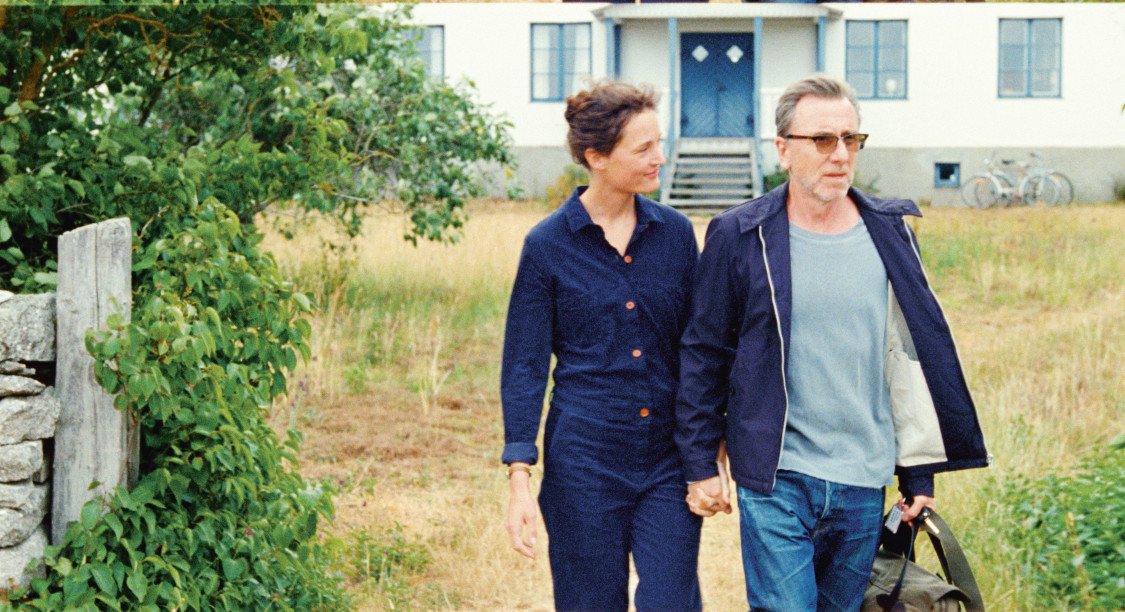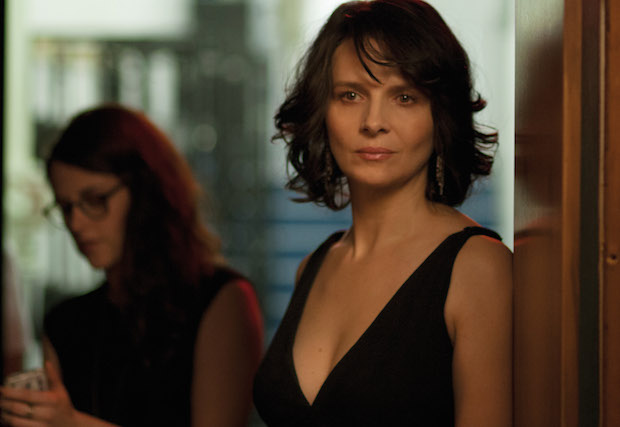Bergman Island
by Hope Madden
A lot can go wrong when a filmmaker toys with meta-filmmaking. The movie can become cloyingly clever, it can lose the audience in its self-indulgence, it can become more of a trick than a film.
While Mia Hansen-Løve’s Bergman Island is arguably as self-indulgent a film as you will find, she risks all these trappings but falls to none.
Her movie follows two filmmakers, Chris (Vicky Krieps) and Tony (Tim Roth), who leave their daughter with Chris’s mom so they can devote themselves to some solid writing time. They travel to Fårö island, where Ingmar Bergman lived, worked and shot some of his most famous films.
Bergman Island feels extremely personal in the way that it mirrors, to what degree it’s hard to know, Hansen-Løve’s real-life relationship with filmmaker Olivier Assayas and their devotion to the work of Bergman. There’s also a very intimate sense of the way one filmmaker’s inspiration from the same source can look so very different from another’s. And, of course, there is a kind of dreamy link between generations of filmmakers.
Most importantly, though, this is the story of a couple. Casting is one of Hansen-Løve’s greatest strengths here because, without the committed and vulnerable performances she draws from Krieps and Roth, the film could easily have folded in on itself. It does not, not for a moment.
Roth’s distance as a partner speaks not only to Tony’s ego and insecurity but to his support and understanding – Tony recognizes that this process will be prickly and leaves as much room as he thinks his partner may need to create.
This subtlety becomes a sly maneuver, as you begin to understand the story Chris works on.
The entire tale unfolds on the breathtaking island, where Chris’s stories — her real-life story with Tony, as well as the story within a story she writes — benefit from the windswept beauty of the island.
Bergman Island tells you a lot but leaves it to you to decide what it’s saying. Whatever tale you decipher, your time on the island is well spent.





